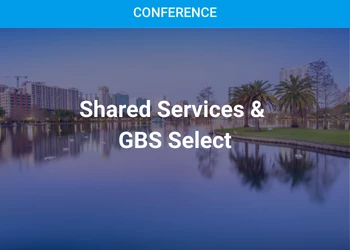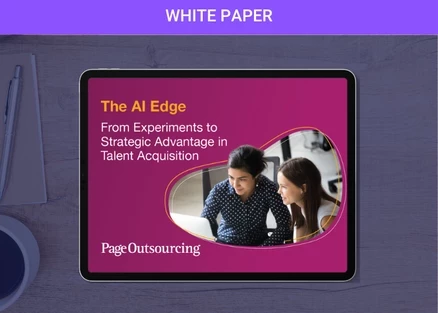Most professionals who have worked in the shared services or the outsourcing market will tell you that the most appropriate type of activities to move into a shared service centre (SSC) is work that is transactional in nature.
So, what, exactly, is transactional work? Transactional HR is concerned with the day-to-day mechanics of keeping an organisation running; it includes the repetitive, administrative tasks done within the function, such as employee data management or payroll. It is work that has clearly defined rules and processes.
One of the better models, in my opinion, to show the major HR processes and split between those that could be considered transactional versus judgement intensive or strategic comes from Everest Research Group.
There are many examples of shared services and outsourcing for the processes that are transaction intensive. It is time to focus on the judgement intensive areas.
Is it possible to put judgement-intensive activities into an SSC or even have them provided by an outsourcing organisation? The answer is yes, as businesses never put 100% of all the activities associated with a process in an SSC. For transaction-intensive processes, the percentage of activities that can be centralised is high, 90% or potentially greater. For judgement intensive, the portion of activities that could be centralised will be less, but there is still value in considering these processes for shared services or outsourcing.
Recruitment is a major process which many organisations provide via outsourced services. Recruitment process outsourcing (RPO) comes in several “flavours”. Some providers augment an in-house recruiter’s activity by providing individuals to sit on the customer’s site doing the agreed recruiting activities. Other RPO providers have the most judgment-intensive activities provided from on-site or on-shore locations, and the administrative activities provided from an off-shore services centre. Where the judgement comes into play typically depends on the type of positions filled.
If you need to hire 20 new call centre agents per month, with the same job description, experiences and behaviours then a significant portion of that work could go into a shared services centre, as it is repetitive and focused on a particular profile. The level of judgement is relatively small as most of the variables can be eliminated through structured interviews and testing.
If you are hiring one sales person per month, you would put less of the activities into a shared services centre because more steps in the process require judgement. In hiring a sales person you are looking for references or evidence of experience and performance that will help you “feel” that the individual would be a good sales person and therefore judgement comes more into the equation on whether to hire or not. You could still centralise some of the activities, such as job posting, initial candidate screening, background checks or psychometric test administration (if you use that as part of your process). The interviews, reference checks and overall assessment of fit for the sales culture and environment of your organisation require judgement and therefore are less appropriate to put into an SSC. The volume and the type of candidates you are hiring will determine how much of the activity can be centralised, either in a captive or outsourced delivery model.
Learning has similar characteristics to recruitment. Every organisation has an element of mandatory training (compliance, health and safety) and lower level, skills-based training (normally e-learning) for things like effective communication, languages, basic finance for example. The management of the administration of this type of compliance and skill based learning can easily be centralised. The learning content is standard (e.g. everyone gets the same thing) and in many cases mandatory (e.g. everyone needs to do anti-bribery training) or if not mandatory there is a relatively easy way to identify who has to have what. In this area of learning the enrollment, tracking, monitoring, reporting and follow-up of those that have not taken the required training can easily be centralised.
In addition to learning administration, there are significant portions of e-learning content build and test (SCORM compliance) that can be done in a shared services. This is especially true if you have a high level of bespoke content build. For example, if you are in a company that has short life cycle products where you need to provide product training for the sales and services teams on many different new offerings within a relatively short timeframe. If you consider products like insurance offerings, where there is the bundling of various deductions, types of insurances and other things together to form many different products, this could lend itself to having e-learning content for products done in an SSC.
For both learning and recruiting process, there can be a significant return on investment for many organisations if they centralise activities into a shared operation.
Some of the major criteria to use before deciding if it is right for your company includes: -
- Volume – if you have very low recruitment or learning volumes then centralisation is not going to create an ROI
- Complexity – if you only hire top end financial analyst and you have to be able to build unique offerings and employment contracts for each person you bring on board, then don’t centralise the work. If you are hiring 20 call centre agents per month with standard salaries and employment contracts, putting large portions of the activities associated with recruitment into a shared services operation will create a significant ROI for the company.
Within the other judgement-intensive HR processes, such as performance management, mobility, and compensation, some activities can be centralised. But for most organisations, the volume of work associated with these processes is relatively low (e.g. mobility) or all concentrated within a relatively short period, like performance reviews. Therefore, while there is work that can go into a shared services operation, the real challenge is, 'will it save money and be efficient and effective'?
Shares services can go beyond transactional processes and create great value for an organisation. Shared services can reduce cost and increase the quality of work as individuals are focusing on a set of processes as their primary job. The centralisation of this type of work can also help organisations increase compliance and provide a platform for better continuous improvement.
It is worth considering judgment-intensive processes as candidates for delivery out of a shared services centre operation. It is the next wave of standardisation and centralisation to continue the journey for HR to reduce administration and focus on adding value to the people agenda within the business.
[inlinead]























